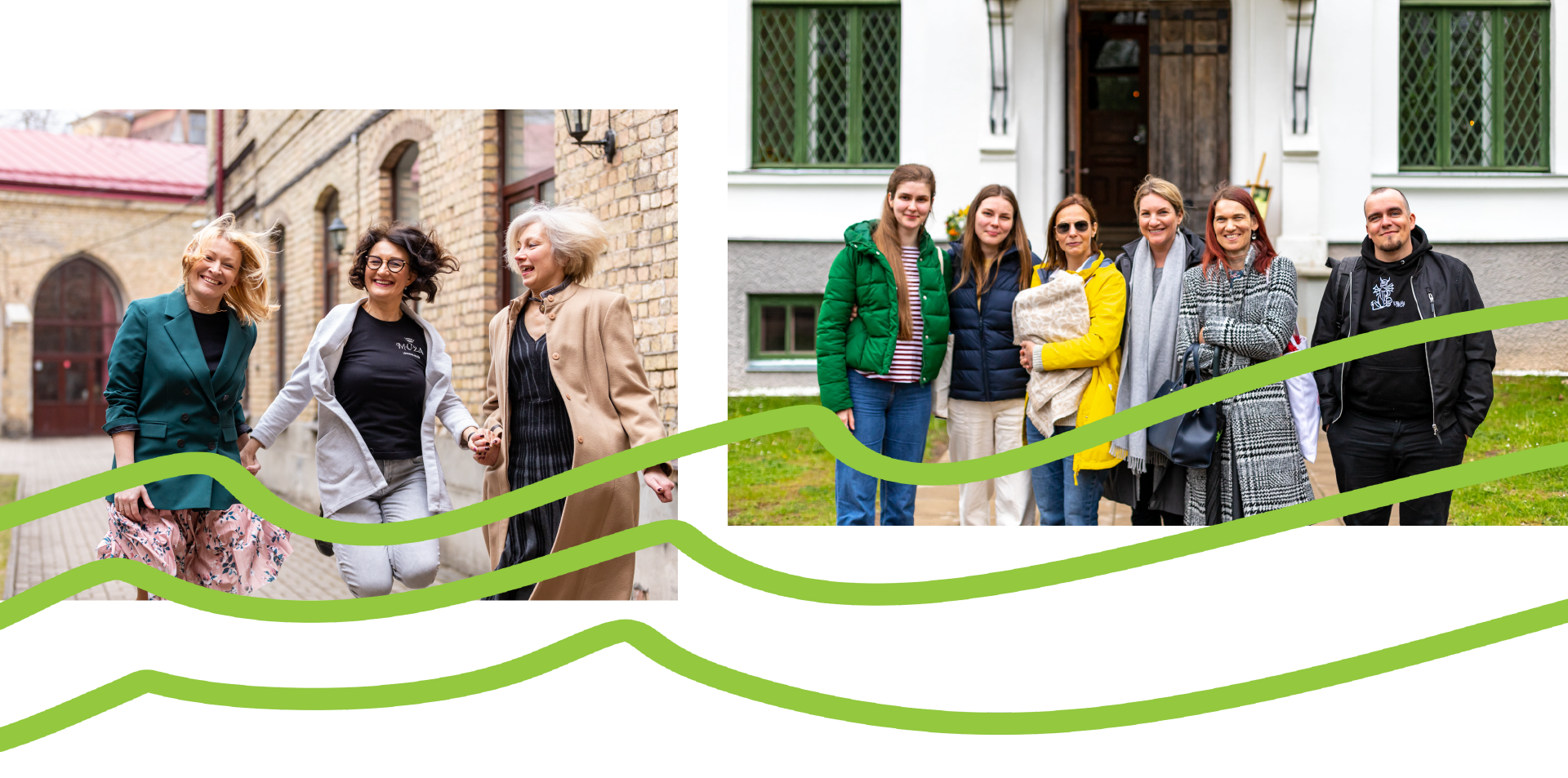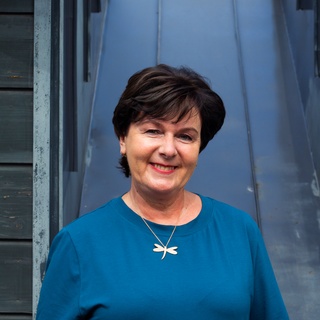Annual admission
Course Brief
LATVIAN ACADEMY OF CULTURE STUDY PROGRAMME, DEVELOPED IN COOPERATION WITH VIDZEME UNIVERSITY OF APPLIED SCIENCE
- Language of study: Latvian, English
- Full-time graduate programme
- Number of budget and paid study places: to be specified
- Tuition fee per year: to be specified
- Duration of studies: 2 years (4 semesters)
- Degree to be obtained: Master of Humanities in Creative Industries
- Study venues: Latvian Academy of Culture, its structural units / remotely
- Specialization internship: internship in cultural heritage institutions
- International mobility opportunities: studies, internships and graduates’ internships within the ERASMUS + exchange programme, opportunity to use foreign government scholarships and attend summer schools
- Studies’ planning: studies will be implemented in hybrid format, combining in-person studies and on-line (distance) learning
- Programme Manager: assistant professor, PhD Elīna Vikmane
The programme was developed in the framework of the project “Development of New Study Programmes for the labour market of the cultural and creative industries sector” (No. 8.2.1.0/18/A/018).

PROGRAMME OBJECTIVE
The programme focuses on the paradigm shift in the cultural heritage impact and the diversity of its forms today, which requires a new type of cultural heritage communication and governance practice.
The programme objective is to provide students with a set of competencies and knowledge to promote understanding of the diversity and significance of cultural heritage today, its interpretation possibilities, its potential as a resource for developing critical and creative thinking with the aim to manage, interpret and communicate cultural heritage in a variety of ways.
PROGRAMME DESCRIPTION
The content of the programme is in line with current trends in the European Union, such as the need to promote a participatory and more open cultural heritage governance process, focused on local resident involvement, sustainability, digitization and the use of modern technology to make heritage accessible and attractive.
Recognition of the economic potential of cultural heritage, critical heritage studies, heritage interpretation and reinterpretation, modern communication, interdisciplinarity and cooperation among heritage industry professionals, specialists with a wide range of knowledge about the industry, challenges of the tourism industry are also important.
These trends have fostered the development of the study programme content, which consists of three parts:
The section on cultural heritage analyzes cultural heritage from different perspectives, its types (both similarities and differences) with the aim to discuss cultural heritage studies at a theoretical level and to show how the understanding of heritage has developed under the influence of various factors. The importance of heritage as a resource (economic, educational, leisure, tourism, social integration, etc.) is being emphasized.
The thematic section on governance is focused on the strategic management aspects of a modern cultural heritage organization – such organizations that are able to follow a participatory heritage governance approach and implement the potential of cultural heritage (including economic), while prioritizing heritage protection and public involvement. Strategic management of organizations, integrated marketing communication, creative entrepreneurship are balanced with the management of memory organizations.
The Interpretation and Communication section is focused on promoting public involvement in heritage governance, modern, community-friendly and binding forms of heritage interpretation with the aim to explain the heritage value.
In order to ensure the acquisition of topics relevant to the field of cultural heritage, its governance and communication, 2 credit points are allocated to the so-called variable part or guest lecturers in the compulsory elective part of the programme.
The programme also includes Specialization internship in the amount of 2 CP.
NB! Some study courses are delivered only in English.
STUDY PROGRAMME OUTCOMES
Ability to independently formulate and critically interpret cultural heritage processes on a local and international scale
Knowledge of cultural heritage industries and systems in Latvia and abroad
Knowledge of the types and manifestations of cultural heritage, heritage-related processes, legal framework, international and local initiatives
Understanding of the need for cooperation and interdisciplinarity in the industry, ability to find and use various cultural heritage resources and tools (as well as those of the relevant institutions)
Ability to create a variety of stories using modern and creative tools for cultural heritage communication
Understanding and ability to implement different forms of cultural heritage governance (at different levels, e.g. institutional and municipal, in different forms, such as through community initiative or business), to attract resources for governance implementation
Ability to independently use theories and methods of humanities and social sciences in research activities
TARGET AUDIENCE
The programme target audience are people with a Bachelor’s (or equivalent) degree in the humanities or social sciences with valid practical experience in cultural heritage and related institutions, or interest in this area, as well as people with several years’ professional experience in cultural heritage field and any Bachelor’s degree (or equivalent).
As a target audience, we consider not only employees of memory institutions, state institutions related to heritage, local governments, but also managers of cultural centers, employees of tourism sector, restoration or heritage sites, agencies, as well as those who want to conduct business based on or related to cultural heritage.
Programme structure consists of three thematic blocks -cultural heritage and its protection, governance, communication and interpretation, as well as academic studycourses – internship, Master’s thesis, research design.
- The heritage part includes such study courses as:Introduction to cultural heritage studies, Cultural heritage law and ethics, Types of cultural heritage and their preservation, cultural and intercultural studies, Sustainability of cultural heritage.
- The communication and interpretation part includes such study courses as: Interpretation of cultural heritage, Cultural heritage as a tourism resource, Exposition as a tool for interpretation and communication of cultural heritage, Creative thinking methods, Integrated communication, Pedagogical aspects of cultural heritage communication.
- The governance part includes such study courses as: Memory institutions, their work and management, Cooperation for heritage governance in the Baltic region, Fundraising, Digitization of cultural heritage, Entrepreneurship in creative and cultural industries, Strategic management.
Information will be specified
Information will be specified
STUDY INFORMATION
FINANCIAL SUPPORT
WHY STUDY IN LATVIA/ LATVIAN ACADEMY OF CULTURE
GENERAL AND PRACTICAL ADVICE
EVENTS AND ACTIVITIES TO EVERYBODY INTERESTED IN STUDIES
Information will be specified

Student feedback
“I am very excited about the programme. An excellent, well-thought-out programme that provides all the necessary competences for those working in the field of cultural heritage and those who would like to make it their career.” (Kristīne Skrīvere, Director of the Cēsis Museum)
“The programme has been developed in a comprehensive, in-depth way, and the dedication of the lecturers is outstanding.” (Liene Johansone, Director of Olaine Museum)
“When I started this programme, I had no idea about the diversity, quality and interactivity of this study programme.” (Lelde Puisāne, Legal Adviser of the Legal Division of the Ministry of Culture)
“The lecturers are brilliant, each with their own methods trying to make us look at and analyse culture, heritage, events and political decisions broadly and critically enough.”
“Another valuable benefit is the colleagues and peers of the programme – all passionate and dedicated professionals in their field, with whom it is not only exciting to study, but definitely exciting to collaborate in the future.” (Ilona Matvejeva, Producer of the Latvian National Theatre)
“It is a great privilege to be here with such diverse, but interesting and inspiring course mates. We can compare our theoretical ideals and ideas with our practical work. Very interesting discussions!” (Eva Koljera, Head of Āraišu Lake Castle)
“The main value of the programme is a strong international team of lecturers, as well as course mates - outstanding personalities each in their own professional field.” (Laura Slaviņa, Head of Agency OZOLS.IR)
After applicant submits the application, foreign student’s previous education documents (diploma and diploma supplement or transcript of records) are being forwarded to the Academic Information Centre (AIC) in Republic of Latvia. AIC is the Latvian representative to the European diploma recognition networks ENIC/NARIC.
The academic recognition is necessary, if the student has a foreign qualification (diploma) and he/she wants to continue studies in Latvia. AIC evaluates the level of your qualification compared to Latvian educational system. This procedure does not apply to diplomas issued in Lithuania and Estonia after 7 January 2019.
The AIC statement is prepared within a month, if necessary, extending the term to 4 months. Academy makes the decision on the admission based on the statement issued by the AIC. In case the AIC does not issue a positive academic recognition of previous education documents, Academy keeps the rights to terminate the application.
More information on the Centre’s functions, education system in Latvia, education documents etc. can be found in AIC webpage.
Information will be specified
Department of Sociology and Management of Culture of Latvian Academy of Culture
Head of the Programme: assistant professor, PhD Elīna Vikmane, elina.vikmane@lka.edu.lv
More information regarding admission
☎ Call – 67140174
✉ Write – uznemsana@lka.edu.lv

















